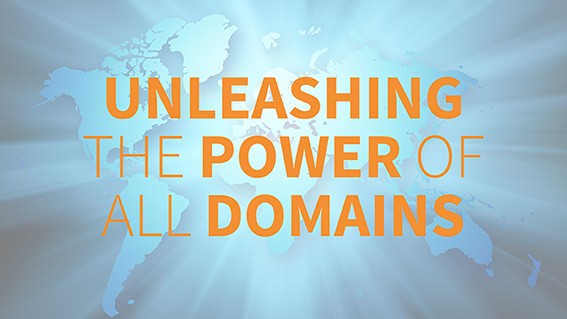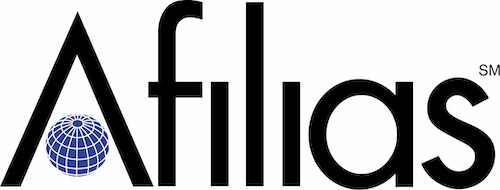Leveraging Governments to Encourage Universal Acceptance
Ram Mohan from Afilias explains the importance of linguistic diversity online, and why a new approach to Universal Acceptance is needed.

© Prostock-Studio | istockphoto.com
dotmagazine: Ram, you were involved in the Universal Acceptance panel at the IGF 2019 recently. Could you give us a little bit of an overview? What is the current status of Universal Acceptance?
Ram Mohan: Universal Acceptance is what stands between the Internet today and the people who are yet to get on the Internet. The fundamental problem is that you not only have an evolving multilingual domain name system and Internet, but you also have domain names with endings – the top-level domains – that are longer than two or three characters in length. For example, if you want to register at an e-commerce site, you will be asked to log in with an email address. Try typing in an email address using a top-level domain more than three characters long, and you will find that in many cases this fails.
If you look at the current status of Universal Acceptance, there is patchy acceptance of domain names longer than two or three characters. Certainly, the acceptance of domain names in languages other than English, or ASCII if you will, is very poor. Most systems, websites and applications don’t actually know how to recognize that a name is a valid URL or that a name is a valid email address if it doesn’t conform to the old standard of a name that ends in two characters and a name that is in ASCII. So, the short of it is that TLD acceptance and Universal Acceptance is not universal at all. This leaves a great deal of ground left to cover.
dot: Have you seen an improvement in the last year or two? Or is there really no movement?
Mohan: In the IGF panel session on Universal Acceptance, one panelist said something that really struck me, and on further consideration, I tend to agree with what he said. Edmund Chung, the CEO of .asia, said that there is a market failure on the supply side. You have registries, registrars, etc. who have these long domain and multilingual domain names that they are trying to sell, and they are trying to have people buy and use. Further down the supply chain, you have people who end up saying there is no demand for non-English addresses. “Why should I modify my applications? Why should I modify my browser? Why should I modify my operating system? Because nobody is complaining about it.” Of course, people who might complain do not speak English, so they don’t know these options are even available.
The approach till now has been: if only we have more education, if only there would be better marketing, if only this sounded less geeky, then it would work. To some extent, it feels like there was a search for a silver bullet. What strikes me is that instead there is market failure and when there is market failure, what is needed is some intervention to rejuvenate that market. So, in the panel, I stated that governments now are the key group or component to drive Universal Acceptance. On the one hand, you have governments’ mission to advance digital inclusion and integrate linguistic diversity. In addition, governments have ongoing responsibility to ensure their citizens have access to the Internet, regardless of whether that Internet is in a local language or whether it is with names that are more than two or three characters long.
If you look at one of the largest levers that exist, which has not actually been activated, this is the lever of procurement. All around the world, governments procure large contracts for long periods of time and these are highly competitive. What I believe is now needed is some level of market intervention from governments in their procurement contracts. As an example, if they require ICT bidders to be UA ready, the problem is substantially solved. Why? Because the problem is not a technical one but one of motivation. We already know that just outreach and education alone cannot reach the far-flung players in the ICT spectrum.
Many years ago, I crafted three rules of TLD acceptance. The first is that an old TLD will be accepted more often than a new TLD. The second is an ASCII- only TLD will be accepted more than an IDN* TLD, and third is that a two or three letter TLD would be accepted more often than a longer ccTLD or gTLD. In the industry, there are some folks who ended up calling it Mohan’s Three Laws of Universal Acceptance. I can’t wait for those laws to be broken! Because they desperately need to be broken. If we want inclusion and we want access and we want linguistic diversity, these laws, these rules MUST BE BROKEN.
dot: You mentioned earlier “access and inclusion”, which are main topics of the IGF in general as well as for the 2019 conference. What topics were involved in or did you listen to relating to access and inclusion?
Mohan: I was engaged and involved in a couple of topics. One, about access and inclusion of women as well as access and protection for children from bullying and cyber crime. These are important and complex topics. One topic trending during the conference focused on frameworks for managing illicit content on the Web and Internet and included how to approach the control of unsavory, criminal, or bad content on the Internet. I was in a couple of sessions where I found myself advocating against what is a creeping tendency of government or law enforcement to say “Just block it at the DNS level” (i.e. stop an entire domain name from working). I lent my voice to explain that blocking at the DNS level is such a blunt force instrument when what you really need is something far more specific and directed. Why block all of amazon.com when one vendor acts inappropriately?
There are also collateral damage issues when you block at the DNS level – for example, if the problem has to do with content on a website and you block it at the DNS level, then you also stop email from flowing. There are some regulators and people involved in these discussions who do not fully understand the consequences of such an order to “shut down the DNS at that network layer”. The better approach is to go to the hosting provider who hosts the content and serve them with an order to take down the content.
dot: Tell us a little bit about the gender inclusion or equality discussions you saw.
Mohan: One session I saw was an interesting panel about what happens when women provide comments. There are articles posted in newspapers and blogs allowing comments to be posted. This session looked at how the response to a woman’s posted comments is generally more hostile than the response to a man posting comments. There was a very interesting comment from a lady who said that this was part of the reason why, when she posts comments, she uses an androgynous name rather than her real name; if she posts with her real name as a woman, for sure, some sort of comments are going to be misogynistic and then the content that she is trying to respond to or the actual message she is trying to provide gets lost in the envelope of her gender. I thought that was very insightful. I also thought it was very sad.
But just to come back to my earlier topic: overall, Universal Acceptance is a critical issue to address if we are serious about digital inclusion and ensuring universal access to resources on the Internet. Market forces have proven inadequate to further this social objective, so it falls to government to create incentives to make this happen. Setting a good example in government ICT contracts would be a good start and would help ensure multilingual resources are more universally available.
*IDN means “Internationalized Domain Name” or a name in a language/script other than English/ASCII.
Ram Mohan has over 20 years’ experience in technology, leadership and entrepreneurship within both publicly quoted and private companies. He served on the ICANN board of directors from November 2008 to October 2018. After joining Afilias in July 2001 as Chief Technology Officer, Ram has overseen the key strategic, management and technology choices for the Group. He has also advised several governments on Internet security and Internet globalization issues as part of Afilias’ ccTLD portfolio.
Please note: The opinions expressed in Industry Insights published by dotmagazine are the author’s own and do not reflect the view of the publisher, eco – Association of the Internet Industry.





